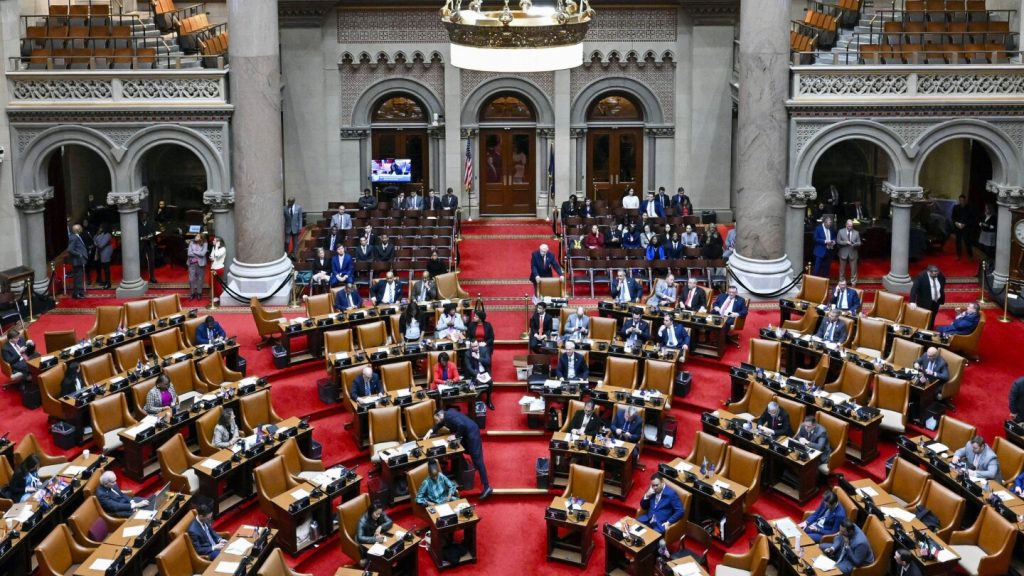New York lawmakers have passed a $237 billion state budget that includes measures to stimulate housing construction and address issues such as unlicensed marijuana stores, the closure of state prisons, and the influx of international migrants. Governor Kathy Hochul is expected to sign the budget into law, which includes an initiative to incentivize developers to rent a portion of apartments in new buildings at below-market prices. While some advocates have criticized the plan for not being comprehensive enough, Hochul hailed it as a significant improvement in housing policy in generations. Critics argue that the tax break for developers is too costly and beneficial to the real estate industry.
In response to the proliferation of unlicensed cannabis storefronts in New York City, the budget includes policies to allow local law enforcement to more easily close down stores accused of selling marijuana illegally. Previously, such enforcement could only be done by the state, leading to a lengthy appeals process that allowed illicit stores to remain open. The budget also allocates $2.4 billion to support international migrants who have overwhelmed the city’s homeless shelters, providing funding for housing, legal services, and healthcare. State Senate Republican Leader Rob Ortt criticized this measure, expressing concern that it may attract more migrants to the state.
The budget also aims to save money by expediting the closure of up to five state prisons due to the declining prison population in New York. Since 2011, the state has closed two dozen correctional facilities, saving approximately $442 million annually. Additionally, the budget includes provisions for paid time off during pregnancies, enabling New York City to lower speed limits, and expanding access to alcoholic beverages. This includes extending the pandemic-era policy of allowing the sale of to-go alcoholic drinks and permitting movie theaters to sell hard liquor. The budget was finalized after a cyberattack hampered the state office responsible for drafting bills for the Legislature.
Overall, the budget represents a combination of measures aimed at addressing various challenges facing New York, from housing affordability and illegal drug sales to population shifts and economic efficiency. While some critics have raised concerns about the effectiveness and cost of certain initiatives, Governor Hochul and other supporters view the budget as a significant step forward in improving the state’s policies and services. The passage of the budget marks an important milestone in the legislative process and signals a commitment to addressing pressing issues and supporting the well-being of all New Yorkers. As the state moves forward with implementing these measures, the impact on communities and individuals will be closely monitored to assess the effectiveness and outcomes of these policy changes.


